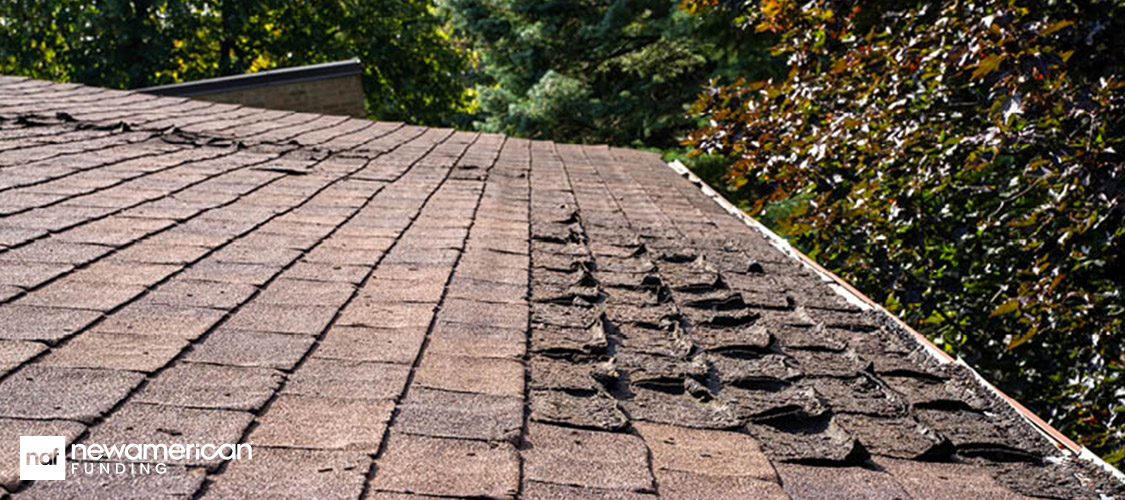Homebuyers
FHA Appraisal Red Flags
May 23, 2024
The Federal Housing Administration (FHA) loan program has helped millions of first-time homebuyers reach their goals. While FHA loan requirements are often described as being less stringent compared to Conventional mortgage requirements, borrowers need to know that the FHA requires that all homes financed through their program meet minimum property standards (MPS). Knowing about FHA appraisal red flags is essential for anticipating if specific properties will be deemed suitable for financing before you start your home search. Here's what you need to know!
What are FHA Minimum Property Standards?
FHA MPS requires any property that is to be financed through the FHA program to be safe, sound, and secure. Here's what this entails:
- Safe: The property is deemed structurally sound based on the condition of its foundation, roof, wall, floors, wiring, and other core parts. The home is also free from dangers that put occupants at risk.
- Secure: The property provides a secure environment that includes properly functioning doors, windows, locks, and lighting.
- Sound: The property lacks any major defects that would compromise its value or ability to be inhabited. When checking off FHA inspection requirements, an FHA-certified inspector will look for water damage, HVAC issues, plumbing issues, and electrical problems.
What are FHA Appraisal Red Flags?
An FHA red flag is any safety hazard, health hazard, or deteriorating element of a home that would jeopardize financing. While one red flag might be linked with a home's backed-up sewage system, another home's red flag might be a crumbling foundation.
At best, an FHA red flag can slow down the closing process. At worst, it can cause financing to fall through. Any item that doesn't meet FHA standards will be marked by the appraiser as needing further repair. What this means is that the issue will need to be fixed before the lender can approve an FHA loan for the home. It's then up to the seller and buyer to negotiate how to move forward to get the work done. A seller may reject a request from a buyer. When this happens, the buyer may need to either walk away or pursue non-FHA financing.
Structural Problems
Major structural issues that are common FHA red flags include cracked or crumbling foundations, deteriorating roofs, and water damage. Other red flags that appraisers look for include:
- Missing handrails.
- Cracked windows.
- Termite damage.
- Dampness.
- Large cracks.
- Stains that indicate evidence of a leak.
- Roof damage.
- Loose or exposed electrical wiring.
- Peeling or chipping paint.
- Lack of access to the home from the street.
- Poor ventilation in attics and crawl spaces.
Health and safety issues that can halt FHA approval
FHA-approved appraisers are focused on ensuring that a home is safely habitable. They look for hazardous building materials and finishes that are known to cause health problems in humans. This can include lead paint and asbestos in older homes. Appraisers also look for signs of mold.
Systems and Functionality
A thorough examination of electrical, plumbing, and HVAC systems is also included in an FHA inspection. These systems need to be in good working order for a property to pass.
FHA Rules on:
Peeling or Chipping Paint
An FHA-certified appraiser looks for peeling, chipping, or deteriorating paint in a property built before 1978. If it's determined that the peeling paint is hazardous, the seller will need to remediate the issue before the loan can be approved.
Minimum Square Footage
Yes, an FHA-approved appraiser will measure a property's square footage to confirm that it meets the FHA's guidelines for minimum square footage. A home must have at least 500 square feet of space that consists of at least one bedroom.
Roof Inspections
Roofing is considered a critical component of a home's structural integrity and soundness in the FHA rulebook. The bare minimum required is that a home's roof does what it's intended to do. From the appraiser's perspective, that means preventing leaks or moisture from entering a home. However, FHA mortgage appraisal requirements go a little further than this. A roof must also provide what the FHA calls "reasonable future utility, durability, and economy of maintenance." The "minimum durability" requirement for the FHA is that a roof has at least two years of life left. If a roof has less than two years of usability left, the appraiser will ask for the roof to either be repaired or replaced.
Crawl Space
A home's crawl space is part of the FHA appraisal process. Appraisers are required to visually inspect all areas of a crawl space to ensure that it meets the following criteria:
- The floor joists must be sufficiently above ground level to allow for standard maintenance or repairs.
- There must be an 18-inch minimum vertical clearance between the grade and the bottom of the floor joists.
- The crawl space must be free of debris.
- The crawl space must be properly vented.
- The crawl space must be free of excess moisture and pooled water.
How to Address FHA Appraisal Red Flags
Any FHA appraisal red flags that are spotted will be reported by the appraiser. The buyer will then have several different options. In most cases, the buyer's agent will approach the seller's agent with requests to have red flags corrected through repairs or replacements. If the seller declines, the buyer may be able to walk away with their earnest money.
Preparing for an FHA Appraisal
For sellers, working with your seller's agent to address any red flags before listing your home is crucial. This can be important for being able to accept offers from FHA buyers. Even buyers who are using Conventional mortgages, cash offers, or other alternative financing routes may request that you update or repair portions of the home before they move forward. Here's a quick checklist of the top items to review and fix before the appraiser's visit:
- Missing roof tiles.
- Any telltale signs of foundation issues.
- Any musty smells coming from the attic, basement, or crawl space could indicate mold.
- Any rotten, broken, or missing deck boards.
- Broken cabinetry or hardware.
- Major appliances, furnaces, baseboard heaters, boilers, water mains, electric systems, or water heaters that have been turned off or disengaged.
- Telltale signs of pest infestations.
- Leaking faucets and toilets.
- Backed-up, corroded drains.
- Clogged waste systems.
- Low water pressure.
Who Enforces FHA Minimum Property Standards?
The Federal Housing Administration (FHA) enforces its property standards in collaboration with FHA-approved lenders and FHA-approved appraisers. In most cases, enforcement of FHA standards has little impact on the appraisal process and loan approval. Of course, one notable detail is that there is no option to waive an appraisal with an FHA loan the way you can with a Conventional mortgage. While this type of inspection plays an important role in protecting a buyer from purchasing a home, some sellers consider offers with an appraisal waiver more competitive.
FAQs About FHA Appraisals and Red Flags
What happens if an FHA appraisal fails?
If a property fails to meet FHA mortgage appraisal requirements, the appraiser will note all red flags in their appraisal report. If the buyer and seller wish for the loan to proceed, they will need to negotiate to have repairs or updates done. If a seller is unwilling, the buyer will likely be able to walk away from the deal without losing their earnest money deposit. It's also possible for the buyer to pursue a different mortgage option that doesn't have the same FHA inspection and FHA mortgage insurance requirements.
Can FHA appraisal red flags be disputed?
Yes, an FHA appraisal's findings can be disputed by submitting an appeal request. This can be done if the applicant strongly believes that the appraiser made an error. An appeal can also be used to submit additional evidence that contradicts details in the original report. However, there is no guarantee that this will result in a change.
How long does an FHA appraisal last?
An FHA appraisal for an FHA loan is considered valid for up to 180 days before it expires.
Sources:
- https://www.hud.gov/sites/dfiles/SFH/documents/2022_appraisal_policies_principles_practices.pdf
- https://archives.hud.gov/offices/hsg/sfh/ref/sfhp1-25.cfm








 Smart Moves Start Here.
Smart Moves Start Here.